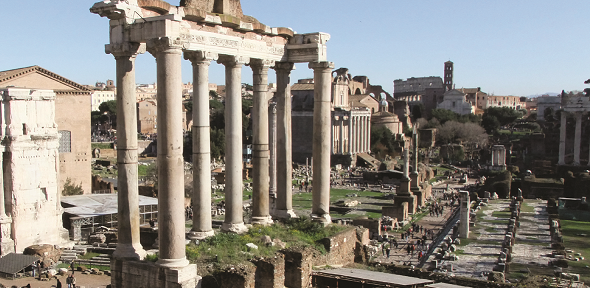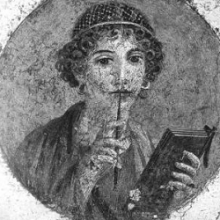
Latin Latin was the language not only of the Romans, but of much literature and other writing until the sixteenth century. Without Latin no one can properly study the evidence for European history up to that time.
Latin was the language not only of the Romans, but of much literature and other writing until the sixteenth century. Without Latin no one can properly study the evidence for European history up to that time.
Ancient Greek
Greek is the oldest European language still spoken for which records survive. Many modern genres (e.g. tragedy, comedy, history, lyric) were founded by the Greeks.
Ancient culture
We offer a high-powered training in Latin and Greek language to make them gateways to the whole of the ancient world. So much in ancient culture stimulates thought about matters which are acutely relevant today. Here are some examples.
- Are there divine forces that control the universe? Are they just? What if they are positively malevolent towards humanity? What then can humans hope to achieve?
These are just some of the questions that arise from the study of Greek tragedy. - Will we be remembered after we have died? Is it worth making sacrifices in life to ensure that our name lives on after us?
These are some of the key issues in Homer's magnificent epic, the Iliad. - Can imperialism be justified? Are the sacrifices of a few worth while for the greater good of the many?
These are two of the questions one might ask after reading Vergil's Aeneid. - Is there a fixed objective standard of goodness and justice?
The great Greek philosopher Plato thought so. Or do we simply define goodness and justice as it suits us? - How should democracy function? How should local government relate to central government?
Where better to start studying these important questions than with the Greeks, who first introduced democracy ('rule by the people'), and the Romans, who managed to govern their empire only because of the help of local authorities.
Don’t imagine that the world of the Greeks and the Romans occupied only a very restricted space and time-span. The Romans came to dominate the whole of western Europe. And a well-trained classicist is able to read Greek literature written between 700 BC and AD 600 - that's 1,300 years, longer than from today to Alfred the Great!
The Classical Tradition
And Classicists don’t just study and teach the cultures of the ancient Mediterranean. What makes Classics special is in no small part the classical tradition – how Greco-Roman antiquity has continued to remain a significant point of reference and departure throughout the centuries, from late antiquity to the present day – in virtually every cultural sphere, including art and architecture, language and literature, and politics and thought.
